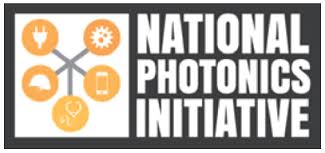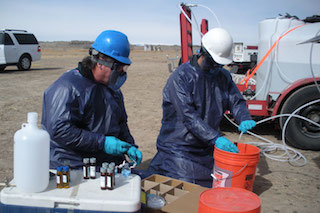 Using health data to understand disease and wellness as well as the best treatment and prevention options forpatients, is critical for improving care. That’s why VA is partnering with the National Cancer Institute’s Center for Strategic Scientific Initiatives to use “big data” to advance favorable outcomes in patient care. “Big data” in health care is a term used to describe complex and very large data sets that have evolved since the inception of electronic health records.
Using health data to understand disease and wellness as well as the best treatment and prevention options forpatients, is critical for improving care. That’s why VA is partnering with the National Cancer Institute’s Center for Strategic Scientific Initiatives to use “big data” to advance favorable outcomes in patient care. “Big data” in health care is a term used to describe complex and very large data sets that have evolved since the inception of electronic health records.
Stanford University
See the following -
NIH Big Data Effort Focuses On Better Knowledge From Existing Data
Big data is transforming biomedical research, National Institutes of Health director Francis S. Collins writes in a blog post announcing an initiative called Big Data to Knowledge (BD2K). To illustrate his point, Collins points to the work of Atul Butte of Stanford University, a NIH-funded researcher looking among mountains of existing data to find new links among genes, diseases and traits.
- Login to post comments
Open Clinical Anatomy Course: Is This the Future of Medical Education?
Stanford University will be running an open course on Clinical Anatomy as part of it’s growing offering of open educational courses. The first clinical anatomy course will focus on the upper limb and kicks off on the 5th March with more courses being planned including one on the anatomy of the head and neck. Read More »
- Login to post comments
Patents: The Next Open Access Fight
 There’s been a lot of talk lately about the state of publicly funded research. Many, including EFF, have long called on Congress to pass a law requiring that publicly funded research be made available to the public. With strong support for FASTR (the Fair Access to Science and Technology Research Act) in both parties, Vice-President Biden making open access a major component of his Cancer Moonshot initiative, and presumptive presidential nominee Hillary Clinton including access to research in her platform, signs are looking good that Congress will finally pass an open access mandate. It’s just a matter of when...
There’s been a lot of talk lately about the state of publicly funded research. Many, including EFF, have long called on Congress to pass a law requiring that publicly funded research be made available to the public. With strong support for FASTR (the Fair Access to Science and Technology Research Act) in both parties, Vice-President Biden making open access a major component of his Cancer Moonshot initiative, and presumptive presidential nominee Hillary Clinton including access to research in her platform, signs are looking good that Congress will finally pass an open access mandate. It’s just a matter of when...
- Login to post comments
Peter Levin, Co-Founder & CEO, Amida Technology Solutions, To Deliver Keynote At Connected Health Conference, Focusing On Health Data Interoperability
 The Personal Connected Health Alliance (PCHA) today announced that Peter L. Levin, PhD, co-founder and CEO, Amida Technology Solutions, will deliver a keynote presentation at the Connected Health Conference on the morning of Tuesday December 13, 2016. Levin's keynote will focus on data interoperability and patient access to their personal health information. "From simple ideas like parental access to immunization records, to life-saving access to clinical trials registries, control of our personal health information is critical," said Richard Scarfo, Vice President, PCHA, and Director of the Connected Health Conference. "Peter is on the vanguard of helping companies collect, aggregate reconcile and transform their health information. His insights on secure, reliable access to patient data will be of great interest to our audience."...
The Personal Connected Health Alliance (PCHA) today announced that Peter L. Levin, PhD, co-founder and CEO, Amida Technology Solutions, will deliver a keynote presentation at the Connected Health Conference on the morning of Tuesday December 13, 2016. Levin's keynote will focus on data interoperability and patient access to their personal health information. "From simple ideas like parental access to immunization records, to life-saving access to clinical trials registries, control of our personal health information is critical," said Richard Scarfo, Vice President, PCHA, and Director of the Connected Health Conference. "Peter is on the vanguard of helping companies collect, aggregate reconcile and transform their health information. His insights on secure, reliable access to patient data will be of great interest to our audience."...
- Login to post comments
Photonics-led Consortium Leverages $3B in Private Cancer Research for Early Detection Technologies
 The National Photonics Initiative (NPI)...today unveiled a white paper and cancer technology road map that identifies the most promising existing and new technologies for increased and concerted private and public investment to achieve the goals of the National Cancer Moonshot – accelerate the early detection of cancer and save lives.
The National Photonics Initiative (NPI)...today unveiled a white paper and cancer technology road map that identifies the most promising existing and new technologies for increased and concerted private and public investment to achieve the goals of the National Cancer Moonshot – accelerate the early detection of cancer and save lives.
- Login to post comments
Precision Medicine Platform Now Open for Collaborative Discovery about Cardiovascular Diseases
 The American Heart Association Precision Medicine Platform — a global, secure data discovery platform, recently developed in collaboration with Amazon Web Services (AWS) — is now open for use. Researchers, physicians, computational biologists, computer engineers and trainees from around the globe can leverage this cloud-based resource to access and analyze volumes of cardiovascular and stroke data to accelerate the care of patients at risk of the number one killer in the United States and a leading global health threat...
The American Heart Association Precision Medicine Platform — a global, secure data discovery platform, recently developed in collaboration with Amazon Web Services (AWS) — is now open for use. Researchers, physicians, computational biologists, computer engineers and trainees from around the globe can leverage this cloud-based resource to access and analyze volumes of cardiovascular and stroke data to accelerate the care of patients at risk of the number one killer in the United States and a leading global health threat...
- Login to post comments
Stanford Researchers Show Fracking's Impact to Drinking Water Sources
 Only one industry is allowed to inject toxic chemicals into underground sources of drinking water – hydraulic fracturing, or “fracking.” Concerns about this practice have riled the U.S. political landscape and communities around the country, perhaps nowhere more so than in Pavillion, Wyoming, population 231. A new study by Stanford scientists published in Environmental Science & Technology finds for the first time that fracking operations near Pavillion have had clear impact to underground sources of drinking water.
Only one industry is allowed to inject toxic chemicals into underground sources of drinking water – hydraulic fracturing, or “fracking.” Concerns about this practice have riled the U.S. political landscape and communities around the country, perhaps nowhere more so than in Pavillion, Wyoming, population 231. A new study by Stanford scientists published in Environmental Science & Technology finds for the first time that fracking operations near Pavillion have had clear impact to underground sources of drinking water.
- Login to post comments
The Growing Trend Of Clinical Research Crowdsourcing
 The trend of open collaboration has led to innovation across multiple industries. For decades, big pharma has been known as conservative and slow to change. Today however, there is a growing movement toward open access and crowdsourcing scientific information to accelerate research and development. Open-source platforms have let developers create multiple crowdsourcing applications, that are further enabling the crowdsourcing trend in the life sciences industry, as well.
The trend of open collaboration has led to innovation across multiple industries. For decades, big pharma has been known as conservative and slow to change. Today however, there is a growing movement toward open access and crowdsourcing scientific information to accelerate research and development. Open-source platforms have let developers create multiple crowdsourcing applications, that are further enabling the crowdsourcing trend in the life sciences industry, as well.
- Login to post comments
This Stanford Student’s $35 Invention Saves Lives and Won Her $150,000
 Maya Varma did something at the age of seventeen that many people will never even accomplish in their lifetime—she invented a device that can save lives. Varma, now a rising sophomore at Stanford University, won the First Place Medal of Distinction for Innovation at the Intel Science Talent Search in 2016 for designing an inexpensive pulmonary function analyzer for the diagnosis of five pulmonary illnesses. Unlike the typical devices that hospitals use to diagnose lung diseases, Varma’s invention is exceedingly affordable, with the necessary materials costing a measly $35...
Maya Varma did something at the age of seventeen that many people will never even accomplish in their lifetime—she invented a device that can save lives. Varma, now a rising sophomore at Stanford University, won the First Place Medal of Distinction for Innovation at the Intel Science Talent Search in 2016 for designing an inexpensive pulmonary function analyzer for the diagnosis of five pulmonary illnesses. Unlike the typical devices that hospitals use to diagnose lung diseases, Varma’s invention is exceedingly affordable, with the necessary materials costing a measly $35...
- Login to post comments
VA Patients Ready to Share E-Records, Says Study
A School of Medicine study found that 80 percent of surveyed Veterans Affairs (VA) patients are interested in sharing their health records electronically with family members, caregivers and outside providers in order to improve their care. Read More »
- Login to post comments
VA using big data to improve health care delivery
- Login to post comments
Valuable Mental Health Apps Lost in a Sea of Untrustworthy Digital Solutions
The mental health industry has been flooded with potentially untrustworthy apps.
With more than 10,000 mobile health apps available to assist with mental health treatment, patients and clinicians now face the daunting challenge of parsing out trustworthy digital tools. That challenge has only intensified as more apps have entered the marketplace amid the FDA’s hands-off approach to regulating apps and wearables, researchers wrote in JAMA Psychiatry...
- Login to post comments